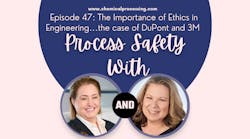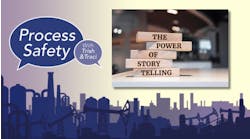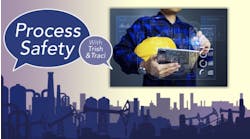Podcast: The Importance of Ethics In Engineering
Transcript
Traci: In this episode, we're going to be talking about safety from an ethics standpoint. This topic was spurred by a recent article in The Guardian that highlighted a deep dive into documents from both DuPont and 3M. This article was based on a paper published May 31st, 2023, in the Annals of Global Health, and its aim was to show how the chemical industry delayed public awareness of the toxicity of PFAS forever chemicals and, in turn, delayed regulations governing their use. There's a lot to unpack in the article and the paper itself and a lot of damning evidence pointing to the fact that both companies were well aware of the hazards of PFAS, dating back to the early 1960s. As I note in every introduction to this podcast, our role isn't to point fingers, but rather to help avoid future events. To that end, you suggested we address this topic from an ethics in engineering standpoint. Can you explain ethics in engineering and its impact on safety?
Trish: Yeah, so look, ethics is a particularly challenging area in any profession that we want to talk about, and that's because it's about doing what's right, not necessarily doing what's easy or what's cheapest or what's financially better for the company at the time. It's actually about doing the right thing. And we need to remember that often the right thing is not a clear black and white. Sometimes there are shades of gray, and in fact, we live in constant shades of gray in this world, and that's something we need to come to terms with. But I thought from the engineering perspective, it was interesting to tackle it this way. So I am a chartered engineer through the Institution of Chemical Engineers, and that means that I'm actually bound by the code of ethics that's defined by the Engineering Council in the United Kingdom. There are four key principles that I must keep in mind in everything I do in my profession.
The first one's honesty and integrity. I have a duty to uphold the higher standards of professional conduct, including openness, fairness, honesty, and integrity. The second one is respect for life, law, the environment and public good. And I think that's a particularly important one here. So, professionals have a duty to obey all applicable laws and regulations and give due weight to facts, published standards and guidance in the wider public interest. That's a really particularly interesting one. There's a requirement for accuracy and rigor. We need to make sure that we understand the knowledge and skills needed to do our role as well. And lastly, leadership and communication. We have a duty to abide by and promote high standards of leadership and communication.
Now, if I then look to the U.S., for example, in the U.S. there's a National Society of Professional Engineers which has a code of ethics. So, if you're a professional engineer registered in one of the states, you actually will have to abide by this code of ethics as well. And you know, you must perform services only in your areas of competence. You must hold paramount safety, health and welfare of the public. You must ensure public statements in an objective and truthful manner and remain a faithful agent or trustee to your clients. You need to avoid deceptive behavior, et cetera, maintain high integrity and honesty. So there's a whole lot of things in there.
And then the one I particularly like, though is if you are an engineer in Canada, Canada has the Oath of an Engineer. Now, this was actually written by Rudyard Kipling in 1922, which I found fascinating. And he has a specific phrase that's written, that when you become a professional engineer in Canada, you swear the Oath of an Engineer. And again, it talks about making sure that you're practicing with integrity and fair dealing, upholding devotion to standards and dignity of the profession, making sure that your skills serve humanity by making the best use of the Earth's precious wealth. Working in the public good. There are very common themes that come through all three of those particular sources.
And I think that's an important part about understanding ethics, that we are there as professionals actually for, we need to uphold the public good and health, safety and welfare, that's a key element of engineering. It's a key element in all of these codes of ethics that I've just referred to. Safety and ethics go absolutely hand-in-hand in everything we do. Sometimes we see it referred to when we think about challenges with working in different countries in the world that have different standards and different things that we are able to do, what standard do we implement? Is it ethical to accept a lower standard of health and safety in a developing nation than in a developed nation? Now, to me, the answer there is no. The challenge is how we actually achieve implementing health and safety to the same standard, but ethically, a life is no less valuable anywhere in the world.
Traci: It's interesting to hear the various codes of ethics around the world. You mentioned gray areas, and I'm guessing this is kind of what's happening with DuPont and 3M, and I want to understand what the industry can learn from this very public outing of this data that has been disseminated in terms of when they found out about the toxicity and the dangers.
Trish: I mean, one of the things that we always have to remember, that claiming to just be following a direction or an order that you were given is never a defense and it never will be a defense, especially for a professional with a code of ethics. We actually have to stand up and exercise our ethical muscle. We need to get exercised on a regular basis. Very early in my career, I was actually involved in an ethical issue and I was directed to do something by my manager's manager. And I believed what I was being told to do was deeply unethical, and I did stand up and I did refuse to do it. One of the challenges we see in that is I then suffered what we call career-limiting consequences. Come the next rating period, I had dropped from being in one of the top 10% of the performers in the company to being in the bottom 10% for no reason given. Just magically apparently my performance had absolutely disappeared because I'd refused a direct order.
So, I actually know what it's like to be on the receiving end of a career-limiting consequence. When you stand up for something, you believe in ethics. It hasn't harmed my career long-term, but at the time, it was devastating, and it really was a big impact at that time. Longer term, as my career has unfolded, it hasn't harmed me at all. But these things are not easy. The fact is, we need to make sure that we are transparent in the work that we do, and starting to try and keep secrets is never a good idea. The fact is that there will always be whistleblowers available. So you're never going to be able to keep something a secret if that's what you're aiming to do. Someone will find out at some point in time, and as we learned out of the Watergate scandal for example, it's not the crime but the cover-up that gets you in the end.
So, you can't go through that whole process of trying to cover up and hide something. It just won't actually work for you. It was interesting last year in IChemE's The Chemical Engineer magazine, we actually did a series on ethics and that had a series of articles written by different members of IChemE about their take on ethics and some of the ethical dilemmas they have faced in their career as well. They're well worth reading those articles. They are freely available on the Chemical Engineer website. So, we'll share that link with you. It's a good reminder to think about what you're doing, why you're doing it, what the purpose is. And I think that's a key thing that we can all learn from what's happened here with 3M and DuPont. We can't keep hiding behind things. We need to be transparent. The world moves very quickly now, particularly with social media, and we need to be very transparent and on the front foot with what's going on. We can no longer hide behind media releases and PR spin. It doesn't work that way.
Traci: How can companies do better? And you mentioned early in your career being faced with that. Are there courses of action to help protect ... You weren't a whistleblower, but you defied a direct order. Are there things in place to protect workers to get to that ethical standard? The code of ethics, they want you to outstand that code of ethics, but do they back you up for doing so?
Trish: Yeah, that's an interesting question. And look, all these professional bodies that have codes of ethics, they actually can't protect you as such, because they can't protect you from ramifications inside the company. They can actually punish you for failing to uphold your code of ethics though. So that's an interesting angle to think about. So I certainly know I could be stripped of my chartership if I am found to be in breach of the code of ethics and stripped of my IChemE fellowship if I am in breach of my code of ethics. So there is a punishment side, but there's no actual thing they can do to protect you in those instances. But it's important that organizations as well really understand.
A couple of years ago, something came up in the banking and finance sector in Australia, where we started to talk about things like compliance risk versus conduct risk. So compliance risk is, can we do it? Is it legal? Conduct risk, should we do it? Is it ethical? Because often there's no legal difference in whether something's ethical or unethical. So there's a whole lot of unethical practices that are actually not illegal. And so that's why people do get away with doing them at times.
So it can be interesting to think about things in terms of, well, is this a "Can we do it?" or is this a "Should we do it?" And if it's a "Should we do it?" we really need to delve into should we do it or is that actually an unethical thing? Now the way to do that is to have structured processes in place in the companies, but we also need to make sure that the companies, our cultures have psychological safety in them so that people can stand up and say, "No, that's wrong. I can't do that. That's unethical. I won't take that action." Whatever they need to say without fear of retribution.
And so that's why culture is so important, and leadership in what we're doing here, because it takes good strong leadership to develop a culture of psychological safety in an organization where you value when people say no. If a leader only ever wants to hear their people say yes, they're a very bad leader. People need to be able to say no. And leaders need to be willing to hear someone say, "No, that's not right. We need to do something different."
You also then need to have strong auditing processes so that you are checking that these things are happening, checking that people are actually speaking up, and then obviously do have a safe and anonymous whistleblower program that's also an incredibly important part. And I can't think of any major corporations around the world that I know that does not have a whistleblower program of some sort. I think one of the challenges is that when we're in the smaller organizations, we may not have that structure in place. And so that's when, unfortunately, the whistleblower program often then is outsourced to the regulator, pick up the phone and make an anonymous call to the regulator and talk about something after you've tried everything internally. You don't jump on that first, but after you've tried everything internally, if there's still something deeply wrong, then there's actually a moral obligation, an ethical obligation to try and do something about it.
Traci: Now that's from the inside out. Going to the outside to get help to the EPA or to the regulators, they can fail too. So how can the EPA and regulators do better? And according to this deep dive into DuPont and 3M, there was some back and forth that makes it sound like, it sounds like the regulators turned a blind eye. I guess that's what I'm trying to get at. How can they do better? Does it happen? Do they turn a blind eye?
Trish: Look, there are some instances where the regulator gets too close and comfortable with the company and lets the company do what the company says is right. And there have been a number of instances around the world where after an event has occurred, it has been found that the regulator has been far too comfortable and close to the entity they're regulating. At the end of the day, the regulators are actually ultimately there to protect society. That's actually their point, ultimately. They're looking after us, the citizens. We need them as citizens, we need them to be competent. We need them to be strong. We need them to be resourced. Now, to be competent and strong and resourced, they actually need government support. Because it's the government that legislates for them to exist. It's the government that determines their staffing levels ultimately by funding. It's imperative on governments to protect their citizens by ensuring their regulators are financed and adequately resourced, and that they make sure that they are competent, that they're able to challenge, and that they're able to challenge without fear or favor.
There was a case a couple of years ago in Australia where the offshore regulator actually put a prohibition notice on a particular offshore asset and said it wasn't allowed to be operated. Now it was really interesting what happened then. The company that owned the asset actually went out of business and went into receivership, and the political pressure that was put on the regulator by elected members of parliament to try and overturn the decision that was made for the sake of safety and the environment. Now, the decision wasn't overturned, it was the right decision by the regulator. It was a tough decision and it was a very tough decision for that company. But ultimately, at the end of the day, it was about protecting the environment and the people.
And that's why the regulator made the decision. And regardless of the pressure that was exerted by some independent members of parliament, the decision was not overturned. But sometimes there's political pressure on these things as well. And we all, I think, need to remind ourselves of what we're here to do. We're actually here for society, to protect society. As a regulator, that's their role. To keep the people safe, to keep the environment safe,
Traci: Who keeps everyone honest?
Trish: Yeah, it's a tough one. Society has to rely on the regulators to keep everybody honest, the regulators and authorities. The companies need to rely on their people, because a company itself is not a natural person. It's a construct in society that we have of these things called companies. A company is defined by its people and what its people do and what its culture is. So internally in companies, we need our people to be ethical. We need them to be standing up for what's right. So we need to show them through leadership what that looks like, and we need to support them with processes that encourage the right behaviors and discourage the wrong behaviors. And then, as I said, the regulators need to be there for society. That's their check and balance. And ultimately, if that doesn't work, if we're unable to keep check on the companies internally and externally, that is why we do have the need, sadly, for whistleblower processes,
Traci: Companies like DuPont and 3M, they do so many things that help our society, that bring things to people that are needed. So, they do many good things, but when bad things happen, how can eroded trust be regained?
Trish: That is a really tough path to go down. Trust takes enormous time to build, but sadly, it can be completely destroyed in minutes. Doesn't take long to destroy trust. It's important to think about what trust actually means. So, trust has four elements to it, and all four elements in any situation need to be present or there will be an erosion of trust. And the first one is, do my actions match my words? Does what I say match what I do. The second one is, am I even capable of delivering what I'm saying to you? Am I competent in doing this? The third one is, what's my track record? Have I delivered for you in the past? And then finally, do I care about your needs at all? If any one of those four are missing, then there will not be trust in that situation.
To achieve that trust, to get it back, you've got to constantly prove these four things to the people that are not trusting you. And you can't do that through just PR spin. These are actually human connection emotions that you need to prove. And again, the company needs to prove it with its people, because people won't trust an entity. They will trust the people in an entity ultimately. Because a company itself can't demonstrate care, but the people in a company can demonstrate care. It takes a long road. It is consistent. It is repetitive, but it is worth it because when people trust you and your organization, you actually get your social license to operate. You're allowed to be there. In some instances, you are welcomed into the community because you are there and they trust you.
Years ago, I used to manage a community group for a facility I worked for. We had great levels of trust. It didn't mean they didn't challenge me, and it didn't mean that we had some very uncomfortable meetings if we'd had to report that we'd had an incident, and we'd bring them in and we'd sit them down and we'd tell them what happened, and we'd tell them in simple language they can understand. We didn't hide the facts, but we also didn't try and baffle them with technical detail. People are not stupid, but you've got to talk to them in a language they understand. And we'd tell them what was going on, what had happened, what we were doing about it. And they would understandably be angry at us because we had harmed their community in some way. And then by the end of it, they would thank us for being open and honest and "We'll see you again next month at our next meeting. Thank you. We appreciate your honesty."
Those same people had a very different relationship with other companies in the area. They didn't have that sort of relationship. They didn't trust the other companies because of how communication was being delivered to them at times. We were trusted. Didn't mean it didn't get uncomfortable when we'd made a mistake, but we had that trust in the bank to be able to use. And we were honest with them, and it made all the difference. You can build it, but it takes time.
Traci: Is there anything, any final thoughts you want to add to this topic?
Trish: So, this is a topic that I am rather passionate about. It's often said that my moral compass is very strong. And as I said, early in my career, I was in a position where I did take an ethical stand. So, one of the things I like to do is run things through a couple of filters to think about whether it's the right action, because as I said earlier, these are gray areas. The first one is, if I do this, will I sleep well at night or is it going to keep me awake? The second one is, how will my words look on the front page of the newspaper? Would I be embarrassed by that? Would I feel uncomfortable about that? And then lastly, how would it sound if I had to justify what I was doing and put the two words, "Your Honor," at the end of that sentence?
And those sort of things make me reflect and think, is this the right thing to do, or do I need to do something else? Because ultimately, I will always try and take the high road, and I always remind myself that whilst the high road might be harder to climb, the view is always much better from up there.
Traci: That's something to live by. That is one heck of a mantra. We appreciate and rely on your very strong moral compass, and once again, giving us great information. Unfortunate events happen all over the world and we will be here to discuss and learn from them. Subscribe to this free podcast so you can stay on top of best practices. You can also visit us at chemicalprocessing.com for more tools and resources aimed at helping you run efficient and safe facilities. On behalf of Trish, I'm Traci and this is Process Safety with Trish and Traci.
Trish: Stay safe.



